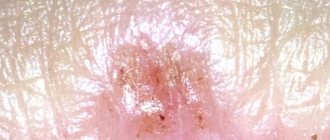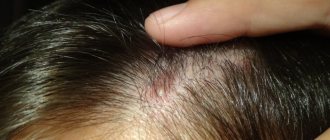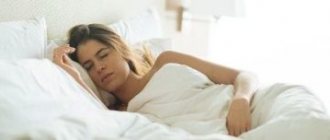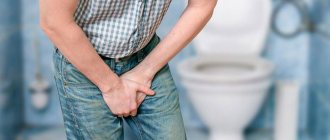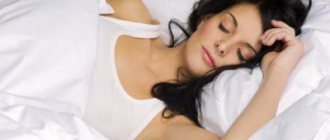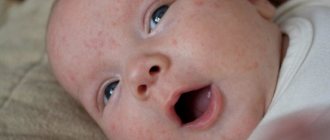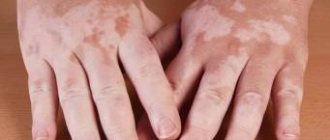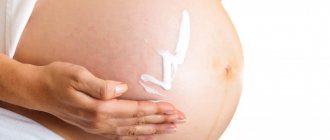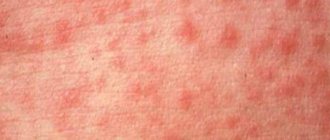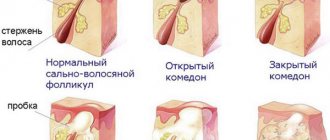0
14956
If the body works normally and the balance is not disturbed, then during sleep all functions slow down. The same applies to sweating, so if you have to deal with hyperhidrosis at night, this may signal the first health problems. That is why it is important not to waste time and find out the reasons that provoked such a delicate problem.
Causes of night sweats
According to statistics, absolutely healthy men sweat more than women, since with greater body weight and active physical activity, the male body more often overheats and more often requires cooling. However, during sleep, all physiological processes slow down, the body and nervous system are at rest, so active sweating is rarely observed in healthy people.
Episodic sweating during sleep in men can occur due to overheating during sleep, which occurs:
- at elevated temperature and humidity in the room (comfortable temperature for sleeping is 18–21 degrees);
- when using synthetic, breathable bedding, pillows, blankets or pajamas;
- when using a blanket made from natural materials that is too warm.
Severe sweating during sleep can also be a consequence of:
- Drinking alcoholic beverages in the evening. Even a minimal amount of alcohol is poisonous to the body, causing dysfunction of various organs and systems. Alcohol entering the bloodstream increases the rate of biochemical reactions, which leads to increased body temperature and increased sweating. Sweating lowers the temperature and removes toxins from the body. In addition, drinking alcohol is stressful for the human body, and stress itself provokes increased sweating.
- Drinking coffee, highly carbonated drinks, spicy and spicy foods at night, which increase blood circulation and cause sweating. Hyperhidrosis can also be caused by eating before bedtime difficult-to-digest foods (containing large quantities of proteins, fats and carbohydrates), which can lead to an increase in body temperature during sleep.
- Anxiety or stress (both negative and positive), in which increased levels of adrenaline and norepinephrine are observed in the blood. The release of these hormones leads to a narrowing of the blood vessels of the skin, the temperature of the skin decreases and the person breaks out in a “cold sweat”. In most cases, such sweating is an instant reaction of the body to an emotional stimulus, but since brain activity continues during sleep (the brain processes information received during the day), an increase in hormone levels is possible even in a sleeping state.
Episodic sweating during sleep is not a pathology - when the factors that provoke sweating are eliminated, increased sweating at night stops. Sweating that persists after eliminating negative factors can be a sign of various diseases, so a man who often sweats at night is advised to consult a doctor.
Drinking Coca-Cola, spicy and fatty foods at night can cause profuse sweating during sleep.
Heavy sweating at night in men and the effect of various remedies
Some medications can affect internal metabolic processes and blood composition. In this case, you may also experience sweating.
It is most often caused by:
- Acetylsalicylic acid;
- Painkillers;
- Insulin preparations;
- Antiemetic medications.
With nocturnal hyperhidrosis, it is worth paying attention to the abuse of alcohol and various psychostimulants. Thus, the male half of humanity is increasingly consuming alcoholic beverages, so they will have to deal with sweating more often.
When drinking alcoholic beverages, dangerous toxins and breakdown products are formed in the liver. In this situation, the body tries to remove these toxic substances as quickly as possible, including through sweat, in order to prevent intoxication.
If alcohol is consumed regularly and in large quantities, then irreversible processes begin to occur in the body. As a result, serious liver damage can develop, including cirrhosis.
As for narcotic and psychostimulant drugs, they contain various harmful chemical compounds. They have a negative effect on the entire body as a whole, the central nervous system and digestive organs begin to suffer, and thermoregulation processes are disrupted.
Against the background of a general deterioration in health, a whole complex of symptoms develops that indicate various problems. But, unfortunately, in this situation, the person taking harmful substances has little concern about his health.
Pathological night sweats
Night sweats in men are a nonspecific symptom that can occur with:
- Acute infectious diseases, ranging from widespread strains of influenza and ARVI to malaria, which is currently rare in temperate countries. Excessive sweating in such cases is a sign of activation of the immune system, i.e. a healthy reaction of the body to a pathogen.
- Chronic diseases of the respiratory system (bronchitis, tuberculosis, etc.).
- HIV infections.
- Diseases of the cardiovascular system (supraventricular tachycardia, heart failure, etc.).
- Disturbances in the functioning of the endocrine system (observed in diabetes mellitus and diabetes insipidus, Itsenko-Cushing's disease, thyroid dysfunction, acromegaly, obesity).
- Allergic diseases.
- Autoimmune diseases (rheumatoid arthritis, multiple sclerosis, systemic lupus erythematosus, etc.).
- The presence of a tumor in the mediastinum, in the lungs or bronchi, with leukemia and Hodgkin's disease. Increased sweating during sleep can also be observed with pheochromocytoma, a hormonally active tumor of the adrenal or extra-adrenal localization.
- Skin diseases (lymphoma, leprosy and erythroderma).
- Sleep disorders, including apnea syndrome, in which breathing movements stop for a while.
Sweating during sleep is also provoked by pathologies of the nervous system - neurasthenia, vegetative-vascular dystonia, Parkinson's disease, encephalitis and central nervous system injuries.
Night sweats during sleep can occur with the use of aspirin, insulin, antibiotics, antidepressants, antiemetics and painkillers (medicinal hyperhidrosis).
In some cases, the cause of night sweats is genetic diseases (Chediak-Higashi syndrome, Beech syndrome, fucosidosis), which are also characterized by other signs and features of the course of the disease.
Increased sweating during sleep can be a symptom of various diseases
Symptoms
The main symptom will be sweat, synthesized by the sweat glands and appearing on the surface of the skin in the form of perspiration or droplets. Severe excessive sweating is characterized by increased volumes of fluid, and it can flow down the body in streams, abundantly moistening clothes and bedding.
The released sweat may have an unpleasant odor due to the active proliferation of pathogenic microorganisms and the presence of certain substances in the liquid that initially smell unpleasant or react with the environment and change properties. The color of the liquid may differ from transparent: it often leaves yellowish marks on things. The whole body or individual parts of it can sweat. More often, the symptom affects areas such as the head, neck, armpits, back, feet and palms, and torso.
Increased sweating is not the only symptom; accompanying symptoms are likely to appear. Possible signs: anxious, restless and superficial sleep, insomnia, significant discomfort, feeling of heat, increased nervous excitability, weakness, unreasonable fears. These manifestations may go unnoticed by the sleeper himself, but they will most likely be observed by a person nearby at night, for example, a spouse or child sleeping in the same room.
Night sweats caused by hormonal changes
Although pathological menopause, which is accompanied by disruption of the body’s regulatory mechanisms, is observed less frequently in men than in women, age-related changes can cause increased sweating at any time of the day in men over 50-55 years old.
During this period, the CGRP protein is activated in men, which promotes the dilation of blood vessels, thus causing changes in body temperature and increased sweating.
According to statistics, approximately 30% of men of this age suffer from hot flashes, dizziness, periodic numbness of the limbs, hyperhidrosis, shortness of breath and palpitations.
Sweating at night in men in this case may be associated with neuroses, cardiovascular disorders and sleep disorders that develop during pathological menopause.
Age-related changes in the body are more easily and quickly tolerated by men who regularly play sports and follow a work-rest schedule, eat properly and do not abuse alcohol and smoking. Pathological menopause is observed in men weakened by various diseases and leading a chaotic lifestyle.
Nocturnal hyperhidrosis in men over 50 years of age may be a consequence of male menopause
Diagnostics
At the first stage, it is important to establish during the diagnostic process whether the patient has a pathology in the functioning of the sweating system. In the process of carrying out diagnostic measures, the doctor identifies the cause of the disturbance in the functioning of this system during sleep.
The doctor examines the characteristics of sweat by color and smell. After receiving the test results, it is possible to determine which organ dysfunctions could provoke hyperhidrosis.
During the diagnostic process, the general condition of the body and its systems is examined and assessed.
When examining a man, the doctor characterizes sweat stains on clothes by their volume. If they do not exceed 5 cm in diameter, then this condition is considered normal. The presence of sweat stains with a diameter of 20 cm or more may indicate a deviation.
To determine pathology, the following diagnostic methods are used:
- The gravimetric method involves attaching a piece of filter paper to the armpit or foot. A person needs to sweat for some time. After this, the rate of sweating is determined.
- The evapometric method is called the hardware method. For diagnosis, a tavameter is used, which measures the volume of fluid secreted by the skin. This technique is highly accurate, but is expensive.
- The Minor test method is used to diagnose the boundaries of problem areas. Lugol is applied to the skin, and after it dries, starch powder is applied. Under the influence of sweat, the starch becomes moisturized and the skin becomes stained. The more intense the staining, the more severe the problem.
- The fingerprint method can detect the presence of hyperhidrosis on the palms and soles.
How to eliminate night sweats
If severe sweating at night in men is not associated with hormonal disorders, infectious and genetic diseases, it is recommended to eliminate sweating:
- Bring the temperature and humidity in the bedroom to optimal values, select bed linen from natural fabrics, replace the blanket with a thinner one.
- Balance your diet. To do this, you should exclude foods high in protein from your evening diet, and during the day limit the consumption of carbohydrates, which stimulate insulin synthesis and an increase in adrenaline levels. Salty and fatty foods should also be avoided in the evening, and consumption of mustard, horseradish, pepper, curry, onion, garlic, coriander, ginger, etc. during the day. spices should be kept to a minimum (for example, garlic can provoke increased sweating within 24 hours after consumption). For any manifestations of hyperhidrosis, it is advisable to eat food warm (not hot), and the last meal should be 2-3 hours before bedtime. You should also not drink strong tea, coffee, chocolate, cola, cocoa and other products containing theobromine and caffeine in the afternoon, which increase heart contractions and thus provoke increased sweating. At night in hot weather, you should not drink a lot of liquid; alcohol, if possible, should be eliminated or its amount limited.
- Do not engage in sports or other vigorous activities before bedtime, since the nervous tension associated with such activities in an easily excited nervous system can cause excessive sweating (with the exception of already existing strong nervous tension, which causes anxiety and interferes with sleep). To calm the nervous system, you should also reduce the light intensity an hour before bedtime and avoid watching films that excite the nervous system at night.
- Take a contrast shower at night. First, you need to use warm water to open the pores and get rid of excess moisture from the body, and then pour cool water over the body, which will help the pores close.
- After a shower, apply antiperspirants to your dry body (you can read more about the effectiveness of antiperspirants and their types here).
Sweating during sleep also helps eliminate:
- Warm bath with infusion or decoction of herbs. Since men are most often not inclined to prepare complex decoctions, in the pharmacy you can buy oak bark, sage, chamomile, St. John's wort, horsetail, ready-made pine extract or sea salt that are easy to brew and effective for hyperhidrosis.
- A soothing herbal tea that helps reduce adrenaline levels and calm the nervous system. Herbal tea may contain mint, lemon balm, chamomile, strawberry leaves, etc. You can replace tea with sage decoction or motherwort infusion (ready-made motherwort tincture can be purchased at a pharmacy).
- Talc, which absorbs moisture well and does not have a negative effect on the skin. Talc is contained in a variety of powders and is applied to a clean and dry body.
Contrast shower before bed helps get rid of night sweats
Diagnostic measures
A doctor can find out the causes of sweating and make a diagnosis after analyzing your medical history and conducting an examination. He will interview the patient to determine the symptoms and features of the manifestations. It is important to remember everything that can help in diagnosis: at what time sweat is intense, what events or signs precede this, whether hyperhidrosis is observed during the day, and whether there are other unpleasant manifestations.
The examination may include ultrasound examinations of various organs, blood tests (for hormones, infections), radiography, computed tomography or magnetic resonance imaging, and ECG.

